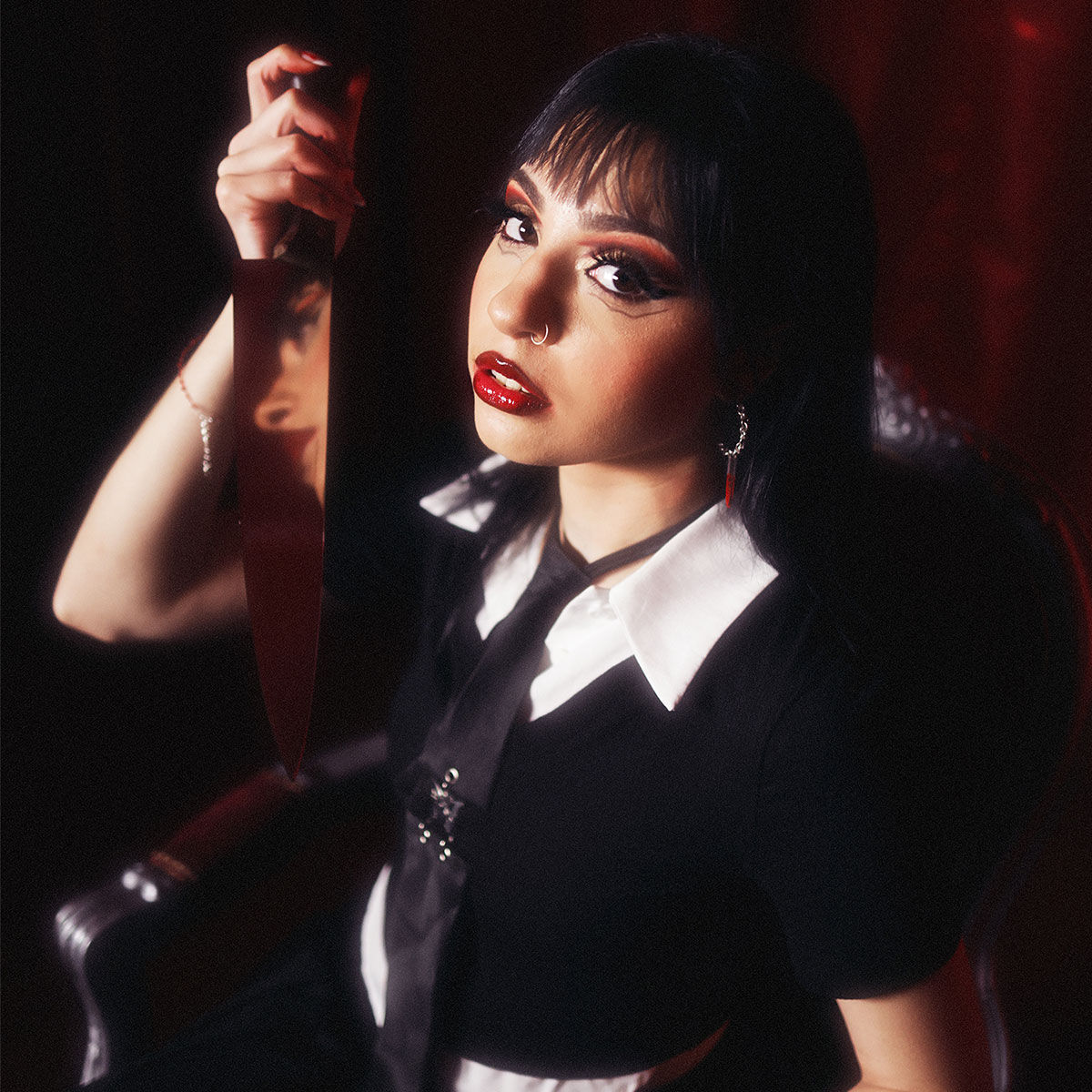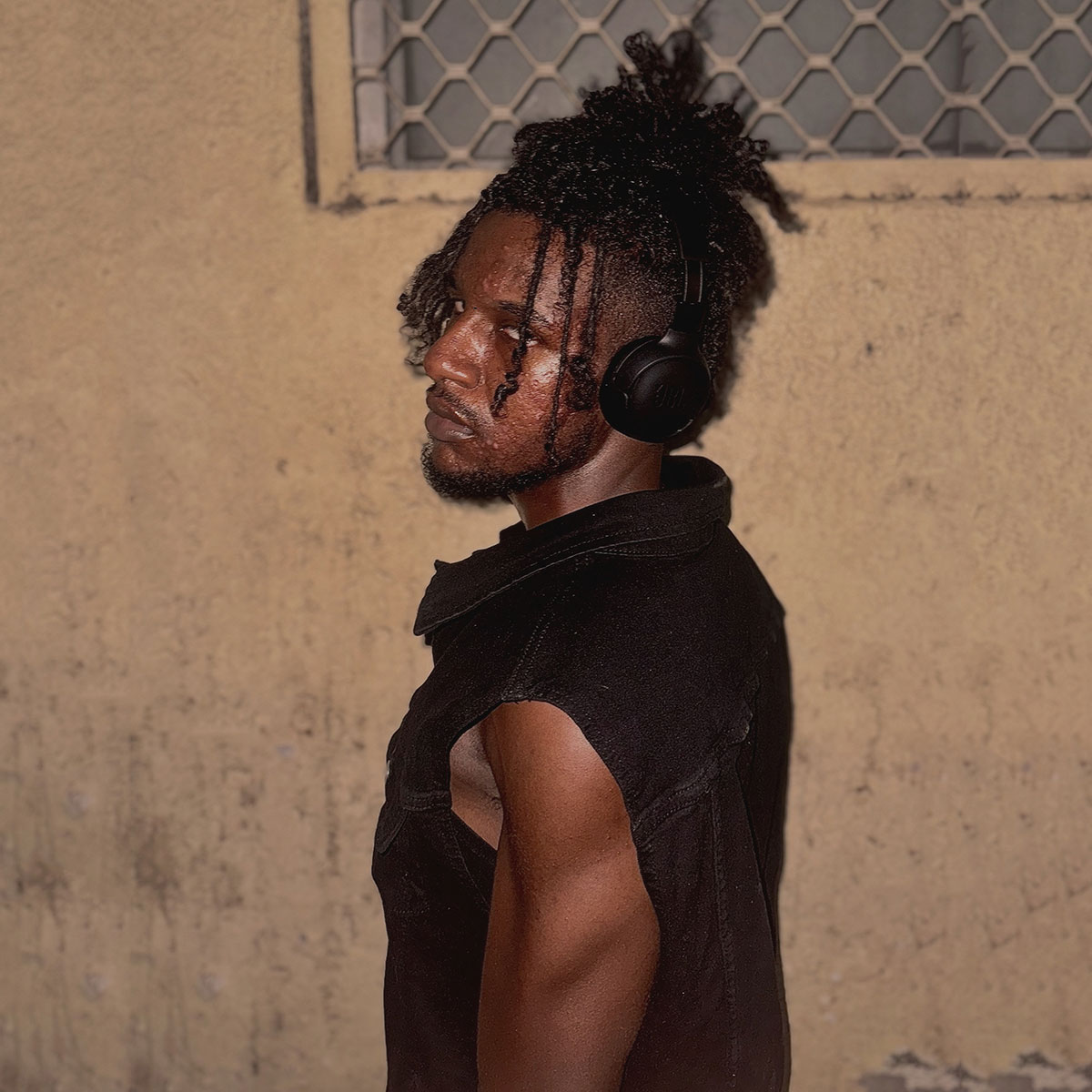For Aymane Haqqi, music behaves more like a language—sometimes as poetic as verse, sometimes as charged as cross-examination.
"MA7KAMA was a diss track for a rapper I lost to in a televised rap battle," he says. "He said a lot of lies, so I made MA7KAMA to hold him accountable."
If that sounds petty, consider the scale: 40 million Moroccans tuned in to that broadcast. "The moment I lost and laid the mic down on live TV—that was when the transformation began. I worked day and night to develop my talent."
SATURN, his most recent project, is the result of that effort—the chaos of the streets, the calm of the Atlas Mountains, stitched together with transnational rhythms. "I always try to stay rooted in my Moroccan origins," he explains, "but infused with foreign rhythms and universal themes."
His identity is not stage-managed. He does not use a stage name, nor does he split his image into artist and individual. "Young Aymane Haqqi always knew he had to be authentic in his music," he says. That brand of realism reflects the instincts he has carried since the beginning.
Arabic rap has not always been polite company. Haqqi has heard the complaints. "From the start, I have faced negative reactions—whether from my family because of vulgar words, or from the public because my clothes clashed with the city's traditions."
Still, he leans in. Haqqi blends formal Arabic, dialect, French, and English with a kind of linguistic indifference to genre. "The thing I hate most is artistic restrictions," he says.
"When I start writing, it is my heart doing the work, not my mind."
The same disdain applies to categories. "Musical genre labels can be limiting," he says.
"I prefer making music with complete freedom."
That resistance to labels does not mean randomness. His songs are tightly composed. "I always start with the truth—whether it is a lyric, a memory, or a feeling."
Haqqi is less interested in formulas than feeling. On "7ISSAN ASSWAD B JNA7OU," he fused jazz rhythms with absurdist lyrics and what he calls psychedelic sound. That track, he says, would be the one he would preserve if forced to keep only a single piece. Call it his magnum opus, though he would probably resist the Latin flourish.
Not everything is about experimentation. Some tracks are pure instinct. Some are survival. "Rap is therapy for the audience who dives into your lyrics and melodies, and for the artist too."
Haqqi is candid about the connection between mental health and music. "I believe mental health is the foundation of creativity. Music helps me release emotions I cannot express with words—it is expression, therapy, and a survival tool all at once."
If he sounds earnest, that is not a contradiction. The same artist who raps about identity and shame is the one who calls the beat for a diss track "a sense of dread."
That duality reflects intention, not conflict. Like a director who switches lenses mid-shot, Haqqi alternates between autobiography and provocation without blinking. No alter ego required.
He prefers to work alone. "Most of the time I work alone because I feel more comfortable in my own world," he says. Still, he does not rule out the occasional alliance.
"If I find an artist whose style matches mine, we have to create something together."
If there is a pop culture reference to be made, it may be Tyler, the Creator, circa IGOR – genreless, confessional, mercurial. Not because Haqqi borrows sonically, but because he shares that refusal to stay put.
According to a 2022 IFPI report, the Middle East and North Africa region was the fastest-growing music market globally, with a 23.8% increase in revenue. Haqqi has no time for data points, but his presence suggests why the region's trajectory depends less on imitation than it does on constant reinvention.
He does not seek validation through applause. What he wants is to be understood. The rest, as he has made clear, will come from the heart.
REGIONAL is musivv’s segment featuring Arab artists in the Middle East. Features under this segment are considered as submissions for nomination under this category in the Musivv Awards’ annual recognition.














